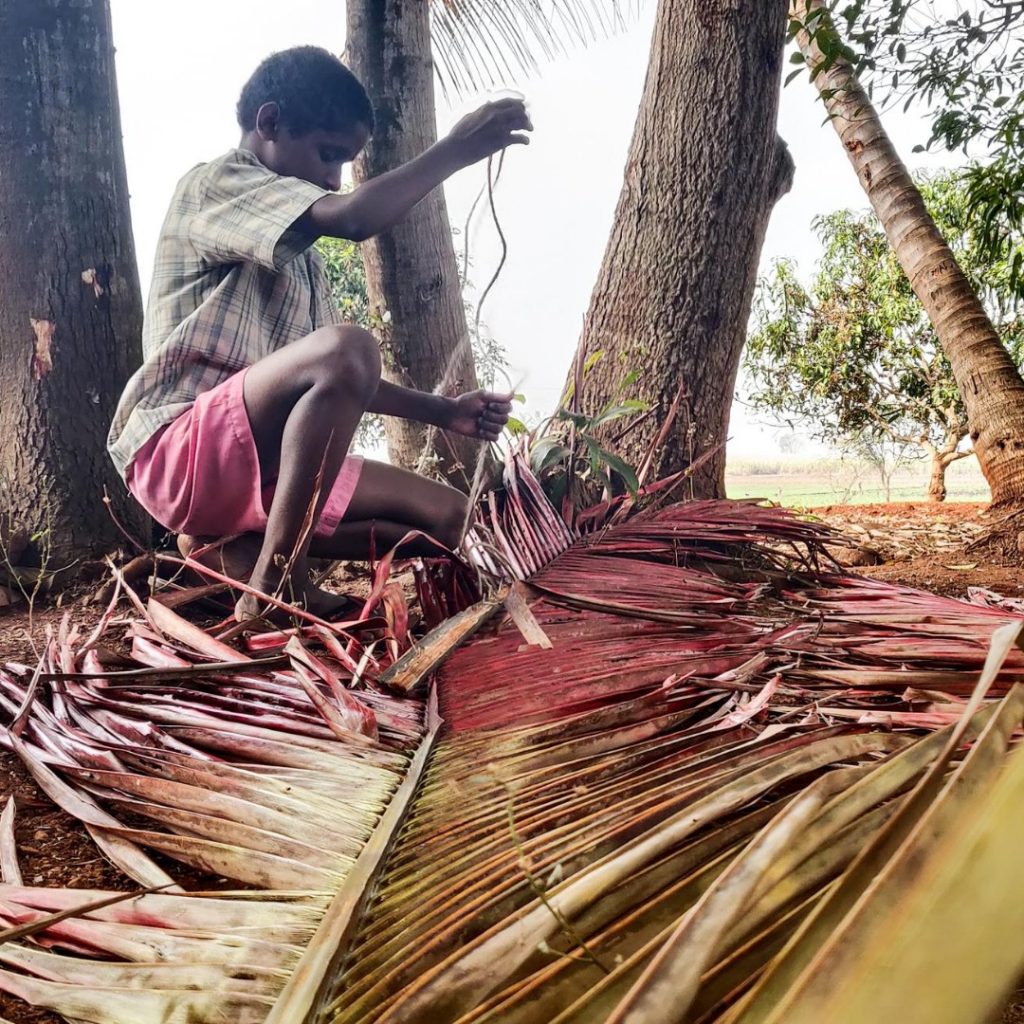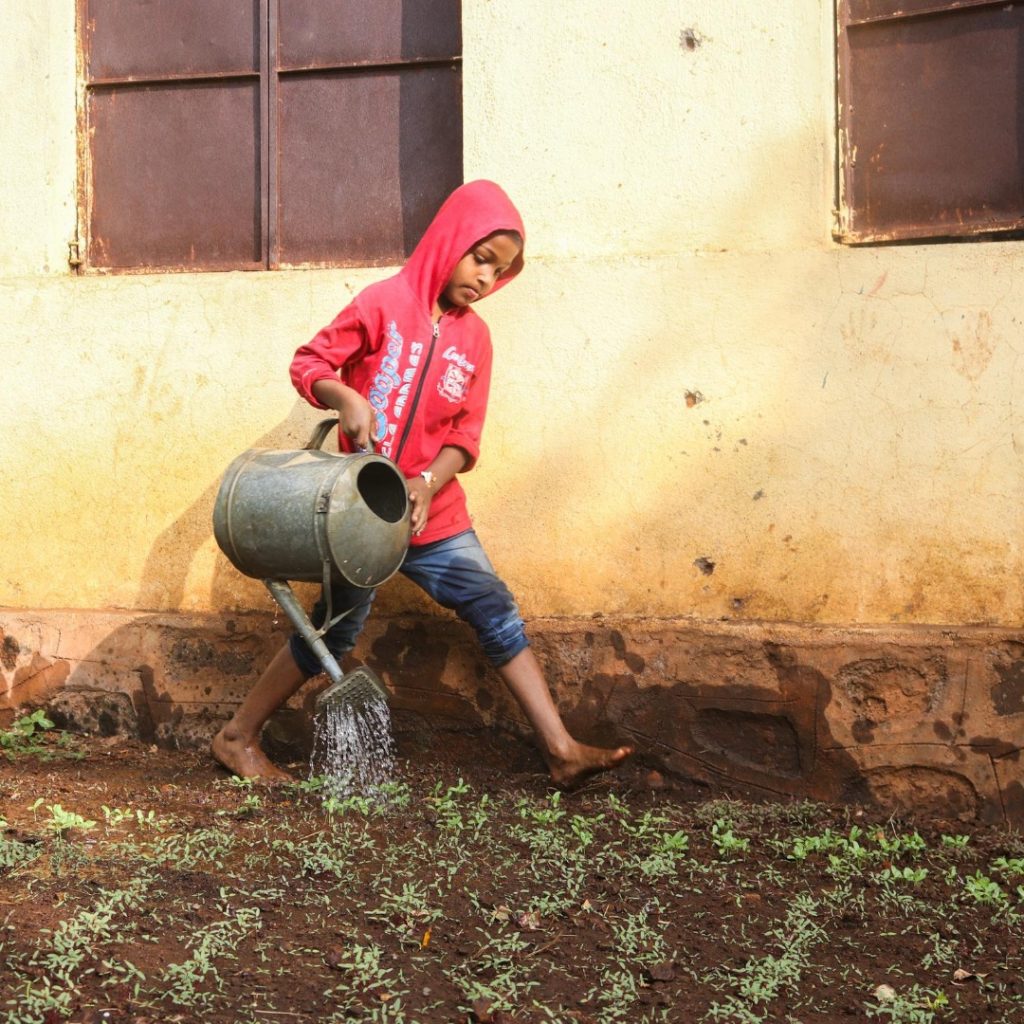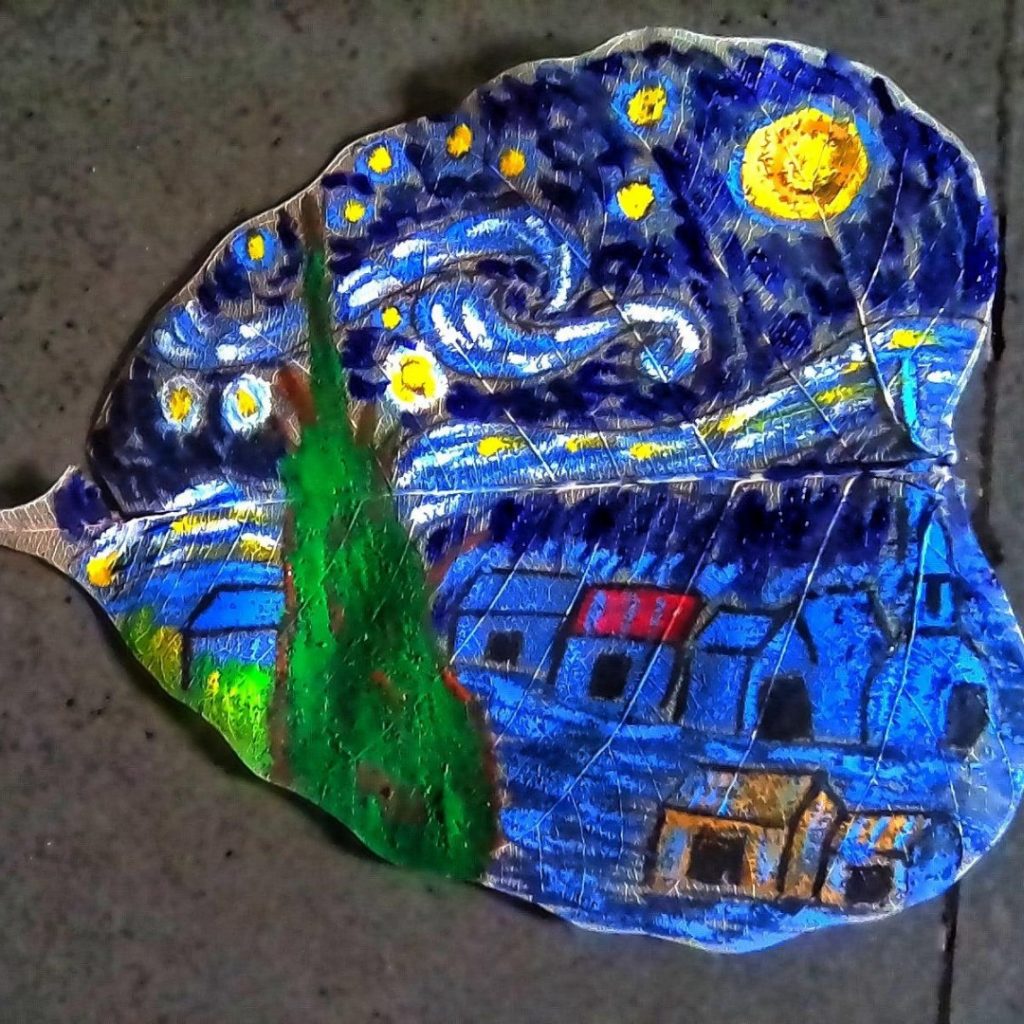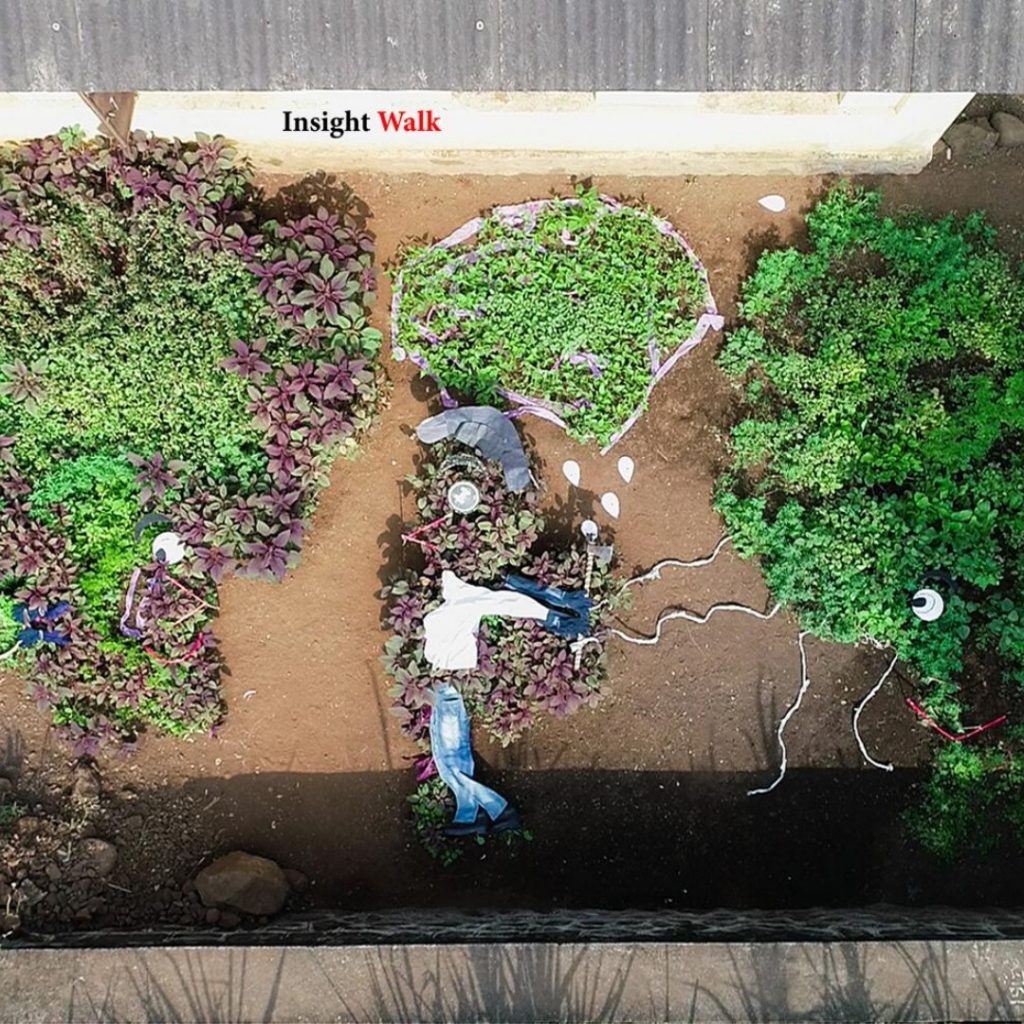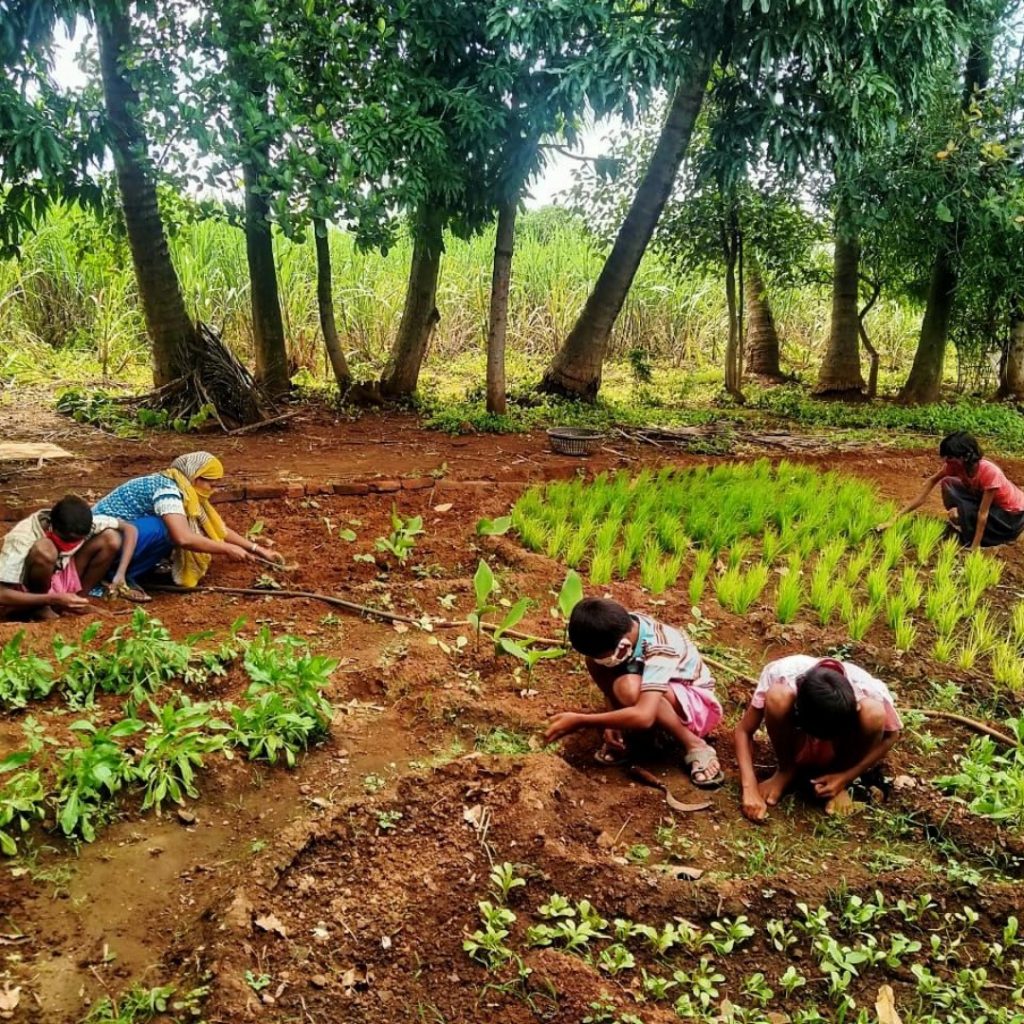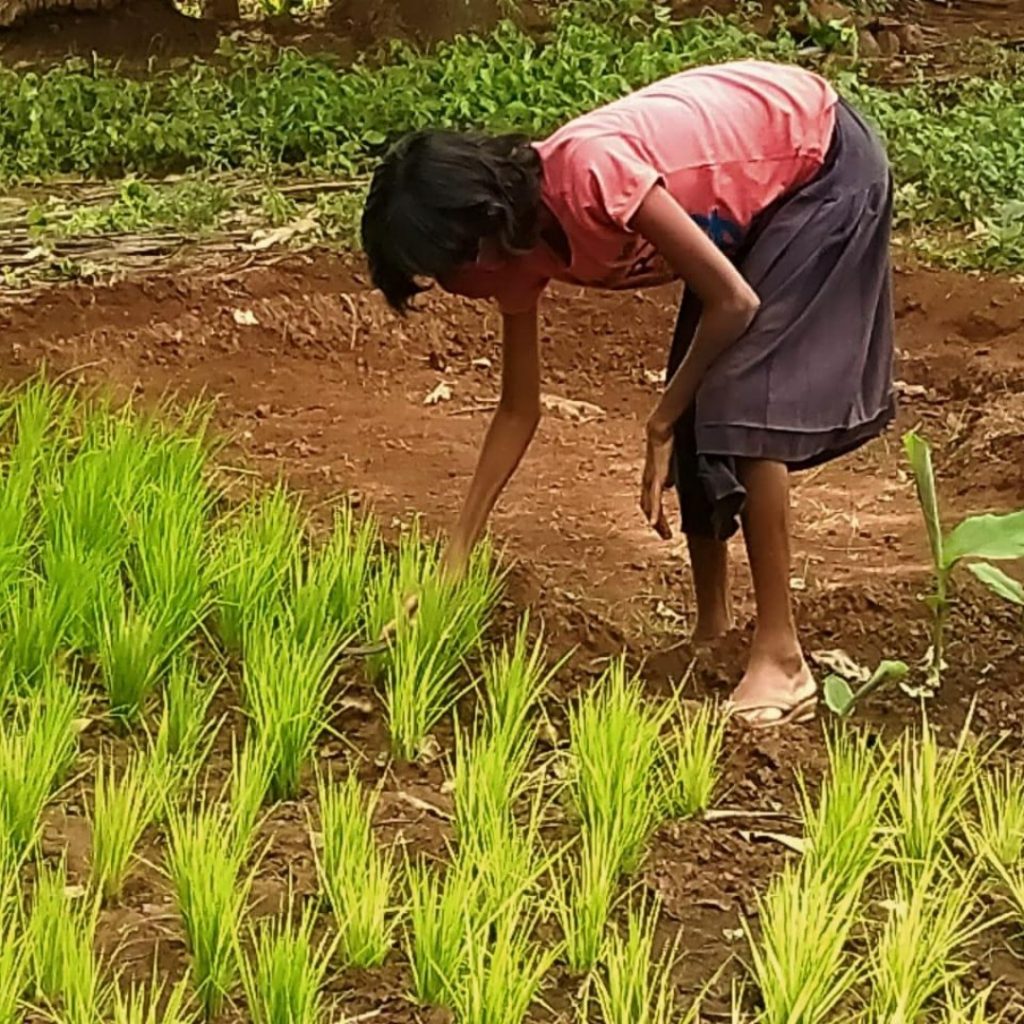Solidarity Art Farm Museum

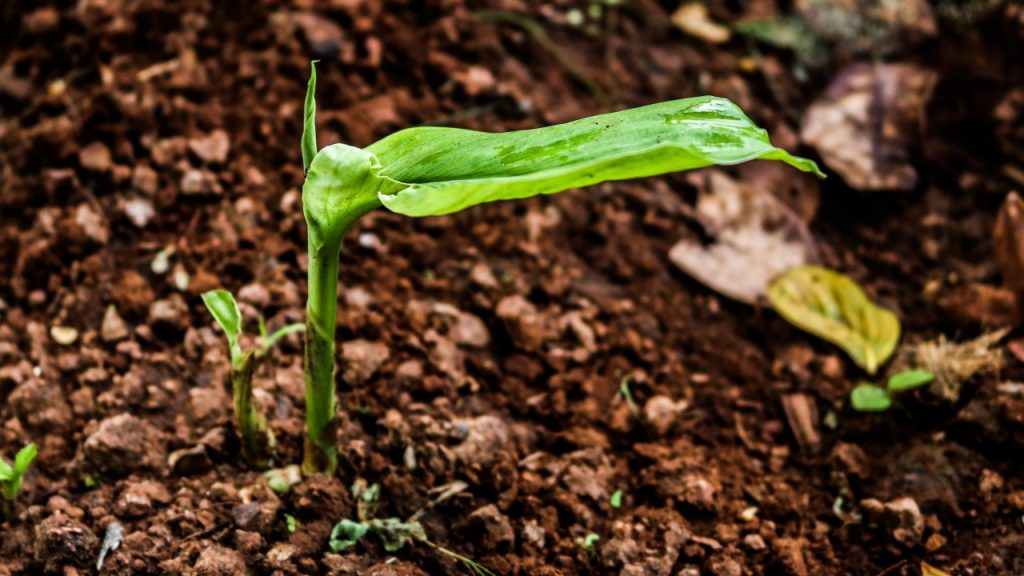
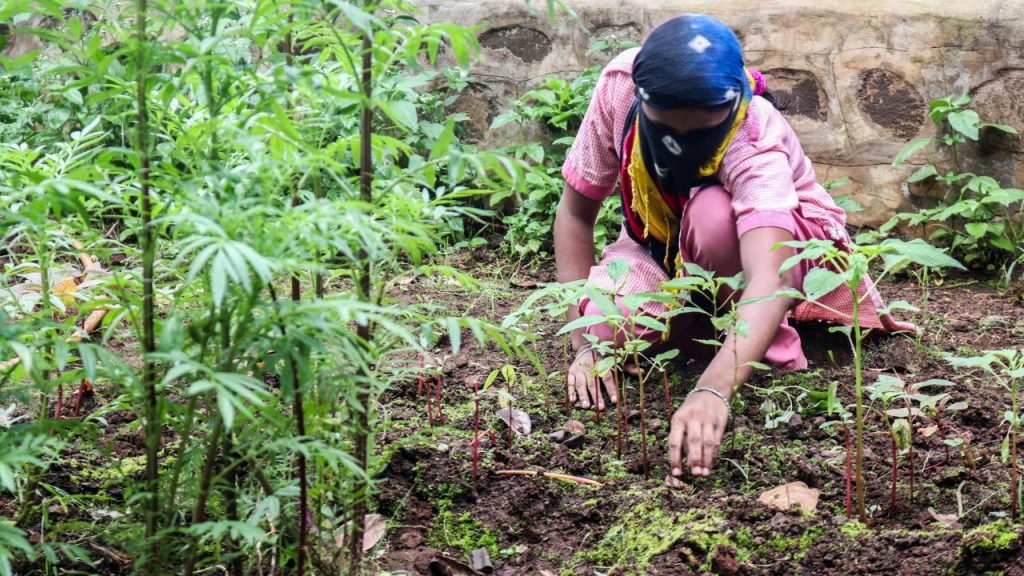
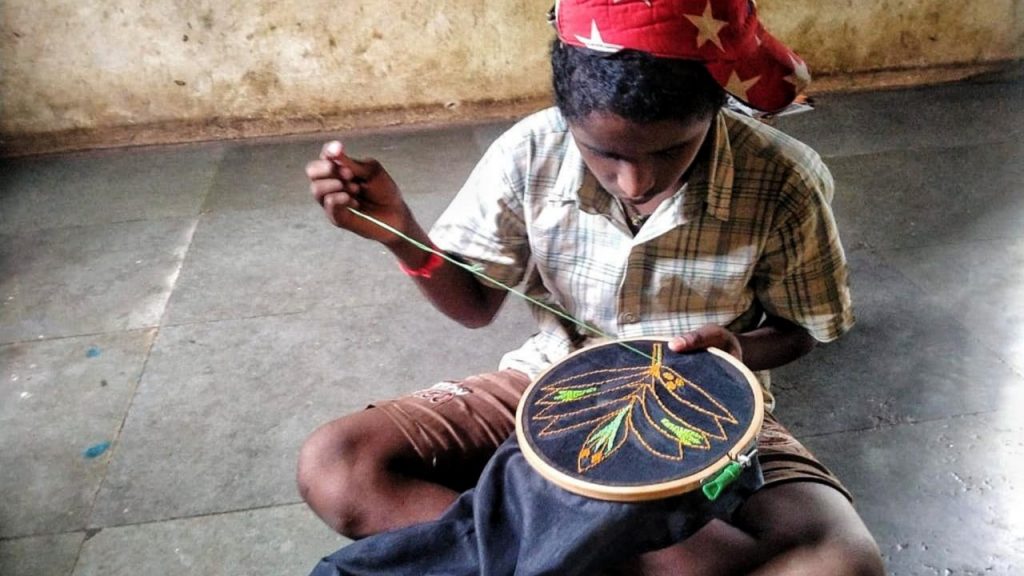
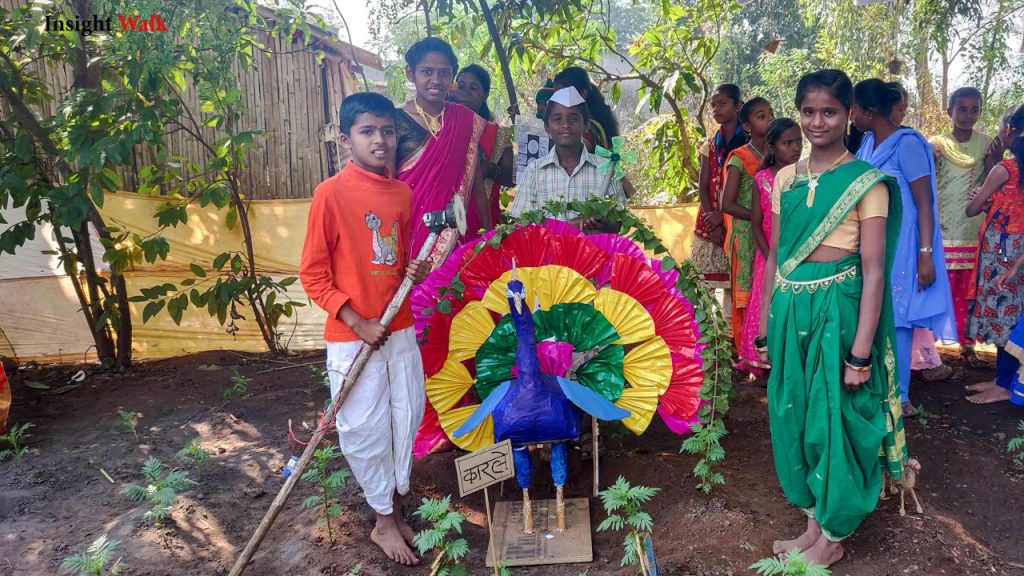
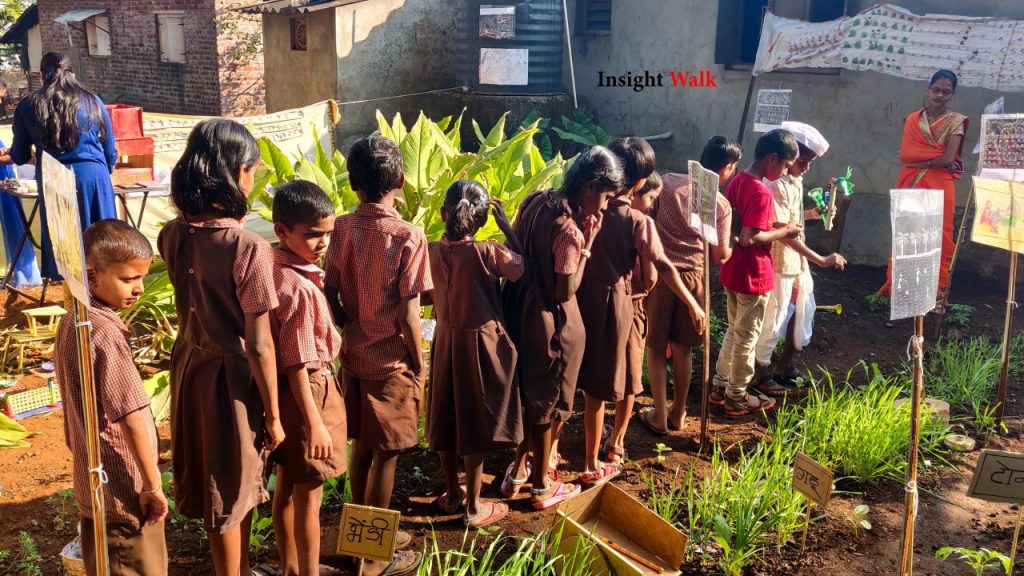
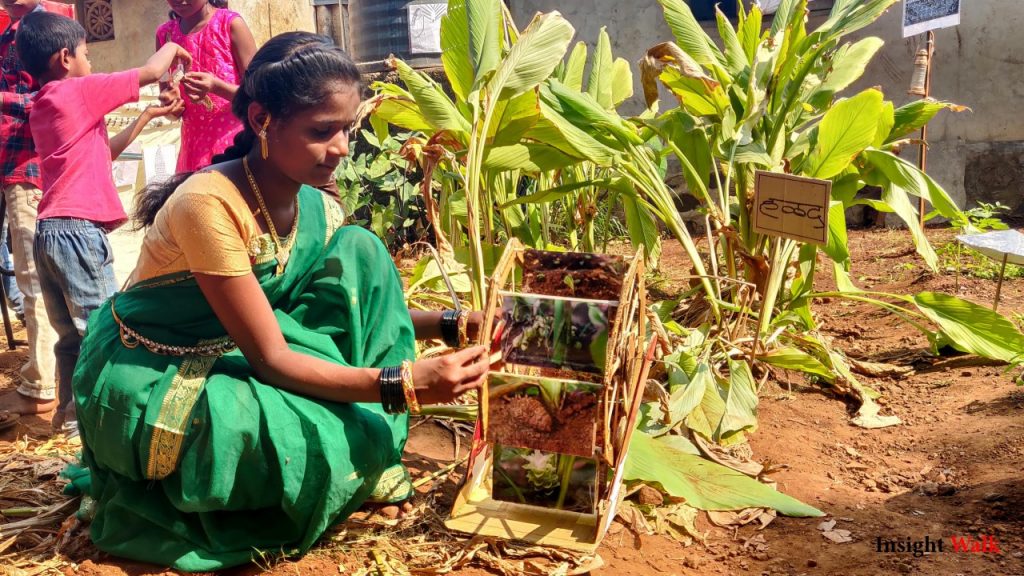
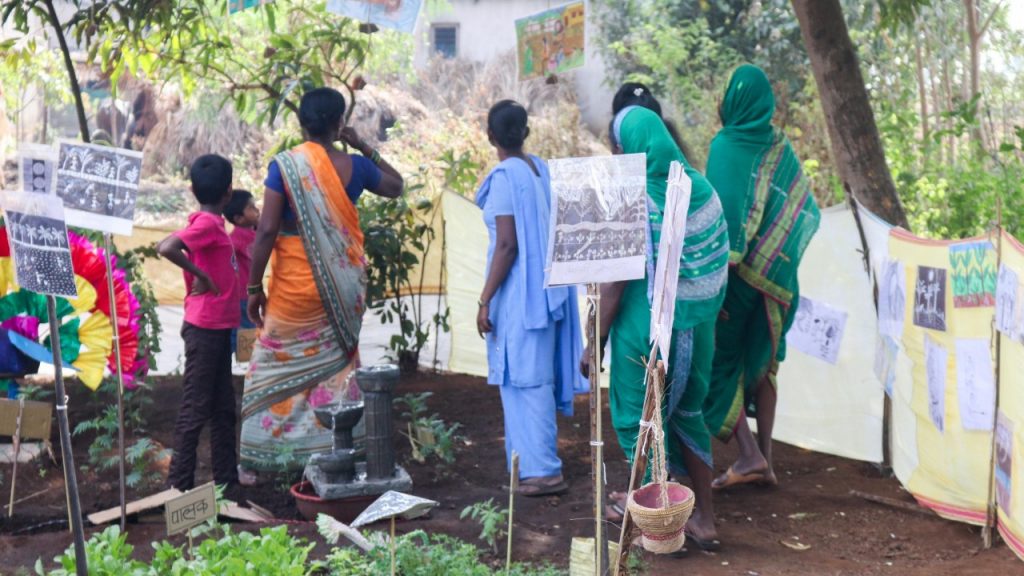
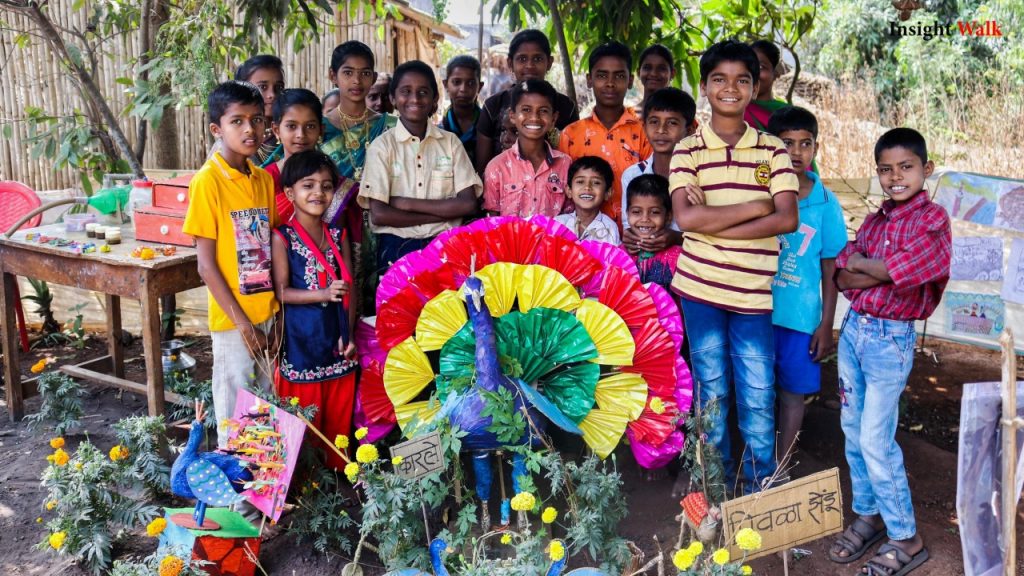
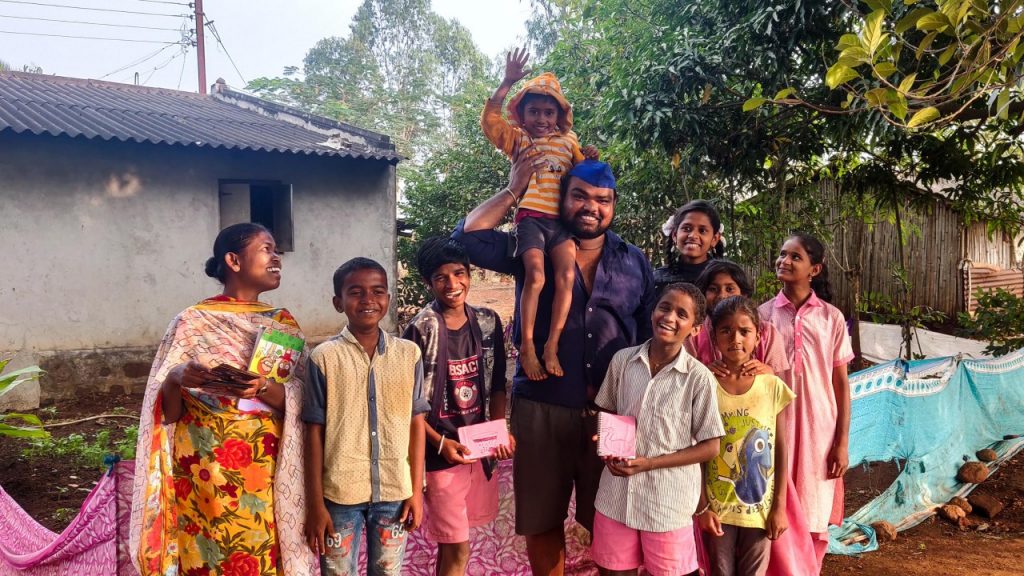
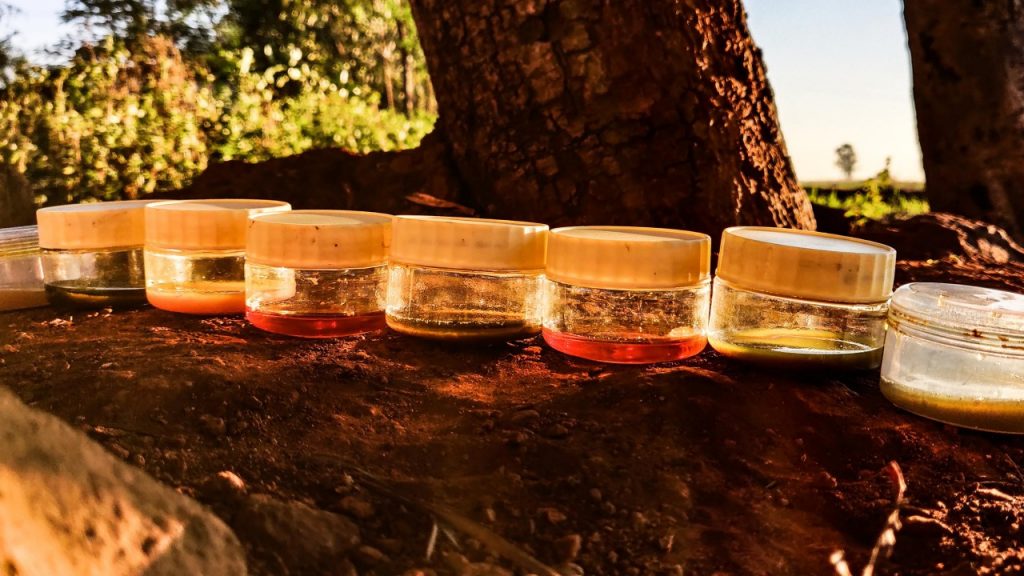
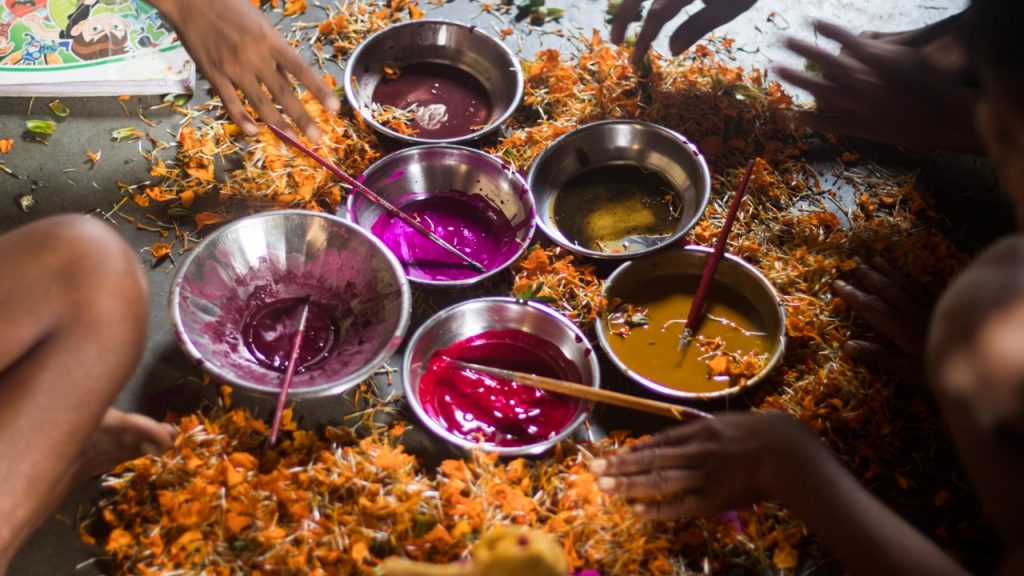

- None of the families of the kids we work with own any land. In the late 80s and the early 90s, they were forced to migrate because of Chandoli National Park Project and Dam. Back then, several of these families owned their farming land. Three generations later, even in 2020, they haven’t received any compensation for the land, forcing them to work as agri labourers and daily wage earners.
- Hence, they are the worst affected during any crisis, be it lockdown, incessant rains, or floods. During such times, they are forced to depend on the external help.
- In January 2019, a group of children started practising organic farming on the common land. The goal was to learn the process of growing organic crops and use it for their day to day needs. In this process, they ended up learning how to cultivate more than 10 varieties of crops.
- They did not stop here. Their focus was also on documentation using multiple skills they are naturally good at: drawing, stitching, painting, storytelling, writing books, etc. This gave them an idea of the Solidarity Art Farm Museum: Space where they learn science, innovation, arts, design, literature, aesthetics, journalism, etc all while doing farming.
- What started as a mere organic farming project overtime became an art farm museum completely managed by kids from the age group 6-14.
- It is a space where children learn journalism, community research, documentation, photography, organic farming, miniature art, innovate from trash, make organic colors from flowers and plants, use paintings, illustrations, block-printing, hand embroidery, poems, storytelling, etc to document their community and much more. (Almost 25 different life skills)
- They utilise space such that trees are used to display their illustrations and art work, space between crops is used to display their science and innovation projects, etc.
- The same kids from the age group 6-14 & their fellow, came up with the idea of an in-house ration model. It’s their ambitious project aimed at ending starvation in the community by cultivating & storing grains & vegetables for any crisis. The same kids were also affected by the August 2019 floods.
- They have never heard of food security, but they know that no one should die of hunger, & this is where it starts.
- They designed a portable hand blender, mixer, magnetic stirrer, dough machine, floor cleaner, thread winding machine, & much more. Blending design skills, science, community development, & fieldwork, they are revolutionizing everyday life.
- When the families ran out of ration during lockdown, our children distributed vegetables they had cultivated on their art farm. This includes spinach, fenugreek, tomato, brinjal, turmeric powder, green chillies, coriander, amaranth leaves, spring onion, lemon grass, dill leaves, etc.
- This was distributed especially to the elderly people, and agri labourers which helped them sustain for at least 2 weeks.
- Face Mask Washing Machine: https://youtu.be/g0VoCn5Hisc
- Dryer for Face Mask: https://youtu.be/-bmC8TRfRJ0
- Contactless Hand Washing Mechanism: https://youtu.be/eV8ncEFjWAc
- Hand Dryer for Face Mask: https://youtu.be/04lZURLPvh0
The goal is not just to distribute resources and supplies and fix the problem for short term, but to address the issue at its roots and create a sustainable community led solution that can be easily replicated, adopted and implemented in future during any crises.
